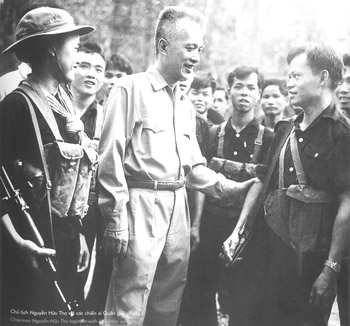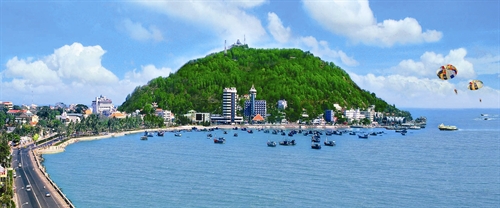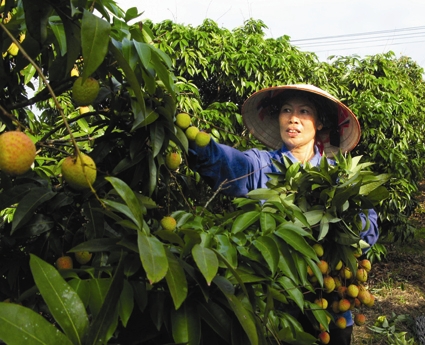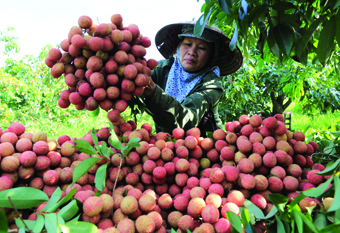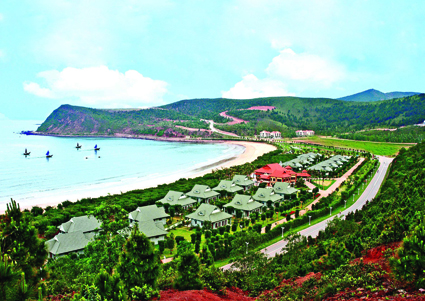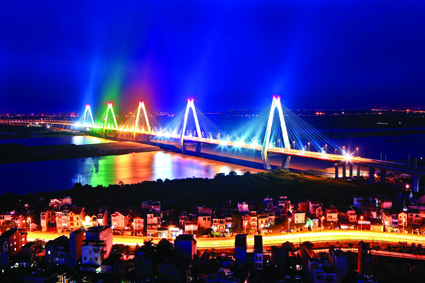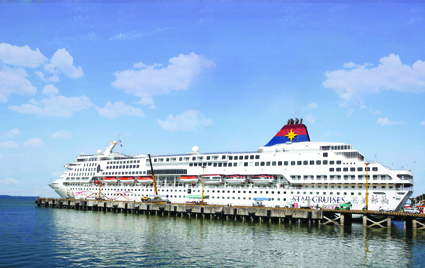Phuong Thao - Kim Ngan
Vietnam News Agency
Being one of four intellectuals ranked as “four towering celebrities” in Vietnam in the early 20th century, Nguyen Van To rendered meritorious services to the elimination of “giac doi, giac dot” (hunger and illiteracy enemies).
He was not only the first minister who fell down for the national independence, but also the first Chairman of the National Assembly Standing Committee (equivalent to the post of National Assembly Chairman now), who always attached importance to the interests of the nation and the people.
An erudite scholar
Nguyen Van To, alias Ung Hoe, was born on June 5, 1889, into a patriotic scholar’s family in Dong Thanh village, Tien Tuc commune of former Tho Xuong district, now Bat Su street, Hoan Kiem district, Hanoi capital.
When young, he studied Han (Chinese) script before going to study in France where he got a senior high school diploma. After returning to Vietnam, Nguyen Van To worked at “Hoc Vien Vien Dong Bac Co”, a historical and cultural research institute set up by the French. It was here where he rose from the position of an assistant to the position of the director of the Institute and became a prominent scholar.
He wrote for Hoc Vien Vien Dong Bac Co’s journal and many Vietnamese and French newspapers such as Dong Thanh, Tri Tan, Thanh Nghi…. Prominent among his elaborate writings were “Dai Nam dat su” (Great Vietnam’s missing history), “Su ta so voi su Tau” (Our history compared to Chinese history), “Viet Nam Van Hoc Su” (Vietnamese Literature and History), “Tai lieu de dinh chinh nhung bai van co” (Written corrigenda of ancient writings), “Tra nghia chu Nho” (Consulting the meanings of Chinese words), “Nhung ong Nghe trieu Le” (Laureates of the Le dynasty), “Tich thanh Dai La” ( Legends of Dai La citadel)…, most noteworthy of which were “ Dai Nam dat su” and “ Su ta so voi su Tau”, two colossal historical books.
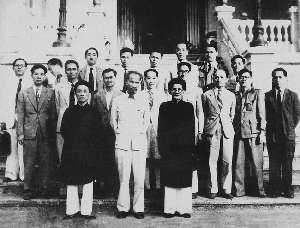 |
| Members of the Government of the Democratic Republic of Vietnam in 1946. First row, from left to right: Nguyen Van To, President Ho Chi Minh and Huynh Thuc Khang__Photo: Internet |
A meritorious hunger and illiteracy fighter
In early 1938, Bac Ky Xu Uy (the Northern Party Committee), at the proposal of Truong Chinh, a Committee member then, decided to establish a lawful anti-illiteracy organization. As a result, “Hoi Truyen Ba Quoc Ngu” (the Romanized Vietnamese Language Popularization Society) was set up with Nguyen Van To as its head. Under the guiding principle of “teaching Vietnamese to read and to write the Vietnamese language and help them understand rudiments necessary for a new life,” only after six years of its activities, the Society established 20 chapters and eradicated illiteracy for over 50,000 people in northern Vietnam alone. Such important results were attributed first of all to its head Nguyen Van To.
Following the victorious August 1945 Revolution, President Ho Chi Minh invited Nguyen Van To to assist the nation in his capacity as the Social Relief Minister (now the Minister of Labor, War Invalids and Social Affairs) in the provisional Government.
From a scholar and a patriotic personality, Nguyen Van To became a minister in the revolutionary government who worked to the utmost of his ability and will, launching the rice-collection campaign against famine. He traveled from village to village in a number of northern provinces to mobilize rice collection to fight hunger.
The first NA Standing Committee Chairman of the Democratic Republic of Vietnam
In the first general election following the August 1945 Revolution, Nguyen Van To was elected a National Assembly deputy of Nam Dinh province. At the first National Assembly session on March 2, 1946, he was elected Chairman of the National Assembly Standing Committee.
During the hard time when the nation’s destiny was hung on a thread, he affirmed: “The National Assembly Standing Committee always attaches importance to the interests of the nation and the people and has assisted the Government in implementing appropriate policies to maintain people’s livelihoods… We are strongly convinced that with the unanimity and unity of the entire population, our country will certainly regain independence and march towards glory and prosperity.”
To his knowledge that in a situation when the country was confronted with foreign invaders and domestic enemies, powers should be concentrated into a strong national executive body with a view to unifying all national forces for national victory, the National Assembly under the chairmanship of Nguyen Van To recognized and delegated powers to the united resistance government headed by President Ho Chi Minh. The Government was answerable to the National Assembly and the entire population while the National Assembly Standing Committee always stood by the side of the Government, contributed opinions to the Government and even criticized the Government if it acted against the national interests. Many important external and domestic affairs were discussed and commented by the National Assembly Standing Committee, especially by its chairman. For instance, before signing the March 6, 1946 Preliminary Agreement with the French Government, the Government Council had gained the unanimity and support of the National Assembly Standing Committee.
In his capacity as National Assembly Standing Committee Chairman for eight months from March 2, 1946, to November 8, 1946, he joined the National Assembly in drafting and passing the first Constitution of the Democratic Republic of Vietnam, strongly affirming the Vietnamese people’s rights to independence, sovereignty and territorial integrity under the young democratic republic that guaranteed the right to freedom of all citizens, regardless of their sex, economic status.… At many question-answer sessions of the National Assembly, Chairman Nguyen Van To answered numerous questions of National Assembly deputies on a wide range of political, military, diplomatic, economic, social issues.
When the national resistance war broke out on December 19, 1946, he and other cabinet members moved to the Viet Bac resistance base for a protracted war of resistance against the French colonialists.
After many months of being held back in cities, in October 1947, the French troops launched an attack on Viet Bac in an attempt to destroy the resistance headquarters. Nguyen Van To was captured and killed in Bac Kan province on October 7, 1947, by the enemy. Only until 1948 after the French colonialists’ plot was frustrated, could a memorial service be held for him.
At the January 4, 2011 ceremony to commemorate the 65th anniversary of the first parliamentary election (January 6, 1946 – January 6, 2011), Nguyen Van To was posthumously awarded Sao Vang (Golden Star) Order, the highest distinction of Vietnam, by the Vietnamese Party and State in acknowledgement of his contributions to the development of the Vietnamese National Assembly.-
